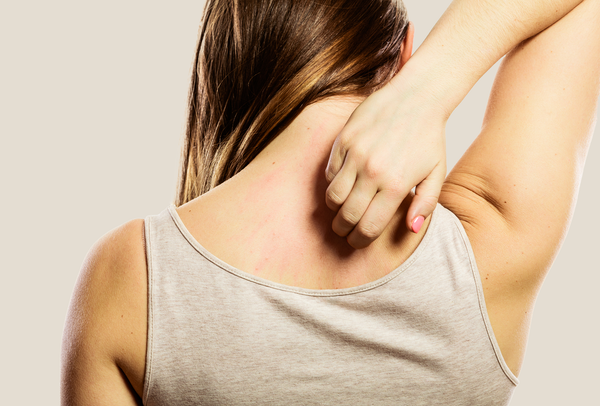In case you hadn’t noticed, we recently experienced the hottest summer on record—ever. As if sweltering temperatures around the globe weren’t enough, heat hasn’t been the only extreme weather we’re seeing just about everywhere. Wildfires in Hawaii, Canada, and Greece; flooding across the U.S. and Europe; a record-breaking hurricane season (which isn’t even over until November 30); and widespread droughts have all been linked to climate change.
The Global Threat and its Impact on Health
Global warming is an existential threat to the planet, our way of life, and likely our personal health. In fact, the rising rate of skin cancer was often used as evidence when the “greenhouse effect” and depletion of the ozone layer became a topic of discussion in the late 1980s. According to the Environmental Protection Agency (EPA), ozone layer depletion allows more UVB radiation to reach the Earth’s surface, and these rays play a role in the development of non-melanoma skin cancer as well as malignant melanoma.
Aside from the ozone layer, pollution is another big concern. According to the World Health Organization (WHO), breathing in pollution leads to inflammation, oxidative stress, immunosuppression, and an increased incidence of cell mutation in the lungs, heart, brain, and every other organ in our bodies.
SEEN’s Sustainability Efforts
At SEEN, we are constantly improving our sustainability efforts in order to reduce our environmental footprint. If we have any chance of slowing global warming, it’s up to all of us as companies and individuals. On our end, we offer Eco-Refill pouches that use 75% less plastic (by weight) as compared to traditional liter bottles. We are also making the transition to packaging that includes at least 25-50% post-consumer resin (PCR). PCR is derived from previously used and recycled plastic and replaces the use of “virgin” plastics, which are first-time processed petrochemicals. We are also committed to gathering plastic before it gets to our oceans through an ongoing partnership with CleanHub, an organization that has built a network of projects that collect non-recyclable plastic. SEEN has been supporting a project called Green Worms, which collects household plastic waste door-to-door in South India since recycling is not available in these communities.
We’re already seeing global warming’s impact on the health of our skin and our bodies as a whole, but have you ever stopped to think about the effects climate change might be having on your hair? (We fully acknowledge that global warming has many more dire consequences, but you’d be surprised how often this comes up in conversation amongst our team.)
The Greenhouse Effect on Beauty Products
The incremental increase in heat we’re experiencing may not directly affect the hair, but it can affect the integrity of your products—especially if they aren’t stored in a climate-controlled warehouse and are subjected to long journeys to their destination in higher-than-usual temperatures.
Personal-care formulations can be heat sensitive, as you know if you’ve left a lipstick in a hot car or beach bag. Certain ingredients can begin to break down at higher temperatures, and many beauty companies have already started taking steps to make their formulations more heat-resistant. However, this can be tricky since products that are designed to withstand higher temperatures may not perform as well at “normal” temperatures. Another way to ensure product integrity is using bottles and jars that help protect the actual product from temperature fluctuations.
Humidity
Increased heat is often accompanied by higher humidity—and this definitely has an impact on the hair. More moisture in the air sets the stage for frizz, as humidity rearranges the bonds within the hair shaft and causes strands to swell.
Pollution
It’s virtually impossible to avoid exposure to airborne pollution, especially if you live in an urban environment. The microscopic particles that create pollution most certainly have an impact on your hair and scalp.
Scalp-wise, pollution can cause inflammation and itching. Researchers are also studying its effects on the hair follicles and hair growth, as well as hair retention and hair loss. It has been shown that pollution can damage the structure of the cuticle, cortex, and keratin proteins. This damage can weaken the hair and lead to breakage as well as a dry, brittle look and feel.
This past summer, Canadian wildfires affected air quality in the northeast, Midwest, and mid-Atlantic regions of the U.S. Although respiratory side effects are the primary concern about the spread of smoke, any type of pollution in the air can have an impact on the health of the hair. (According to this 2021 study, wildfire smoke may also trigger eczema in those without a history of this skin condition.)
How SEEN Can Help
Many of us have learned to adapt our haircare routines for seasonal challenges (such as increased humidity during the summer or dry scalp during the winter), and SEEN can help protect the hair from climate-related changes as well.
Since humidity-related frizz is a top concern, SEEN Shampoo, Conditioner, and Deeper Conditioner, are formulated with hemisqualane (a plant sugar-derived alternative to silicone) to get your haircare routine off on a smooth start. Our Magic Serum, Blow-Out Creme, and Curly Creme are also formulated with this ingredient to help fight frizz while styling.
Our Blow-Out Creme and Curly Creme also contain moringa oleifera, which is an extract derived from the horseradish tree. This botanically-based ingredient provides an extra layer of protection against environmental aggressors like UV rays and pollution.
At SEEN, we're going to great lengths to ease our impact on the environment.By opting for packaging that reduces our environmental footprint, we strive to have a positive impact not just on your hair and skin, but also on the planet. At the same time, our products can help minimize the detrimental toll that climate change, humidity, pollution, and UV rays can take on your hair—all while being safe for sensitive skin and not clogging pores.




